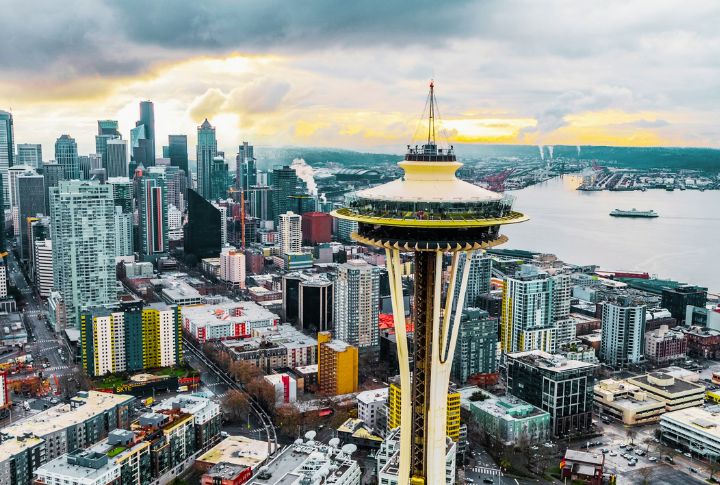Cities
Thinking About Moving To Seattle? Weigh These 5 Pros And Cons First

Seattle stands out with its mix of vibrant city life and breathtaking natural scenery. But living here means considering both the highs and lows, many of which are closely tied to the city’s unique setting, economy, and culture. Here’s a quick look at five key benefits and five challenges of life in Seattle.
Pro: Booming Tech Hub

Home to Amazon’s headquarters and Microsoft’s sprawling Redmond campus, Seattle offers unmatched proximity to top-tier tech employers. This fuels a high-income job market for software engineers and related professionals. In 2024, Seattle was one of the top three cities nationally for tech job growth, with over 290,000 tech workers in the metro area.
Con: High Earthquake Risk From Multiple Faults

Seattle sits atop the Seattle Fault Zone and near the Cascadia Subduction Zone, making it one of the few U.S. cities exposed to both deep and shallow earthquake threats. The city’s Office of Emergency Management actively prepares for a potential magnitude 9.0 quake, a scenario not faced by most major American urban centers.
Pro: Progressive Urban Infrastructure

Seattle’s public utilities lead in green initiatives. Seattle City Light is one of the nation’s only carbon-neutral electric utilities. The city has also banned natural gas in new commercial and multifamily buildings since 2021. It aggressively pursues climate action goals with policies that most U.S. cities have yet to adopt.
Con: “Seattle Freeze” Social Climate

Newcomers frequently report difficulty making friends due to what’s known locally as the “Seattle Freeze,” a reputation for politeness paired with emotional distance. A University of Washington study identified Seattle as among the lowest-ranked U.S. cities for social connectedness due to its unusually high percentage of single-person households and weak neighborhood ties.
Pro: Distinctive Coffee Culture

Starbucks began here in 1971, but Seattle’s coffee obsession runs much deeper. The city has one of the highest numbers of coffee shops per capita in the U.S.—about one for every 2,308 people. Featuring options like Espresso Vivace and Caffe Vita, the local scene is packed with specialty roasters and microcafes that define daily life for many.
Con: Extreme Housing Prices And Zoning Constraints

Though smaller than New York or L.A., Seattle regularly lands in the top five U.S. cities for the highest median home prices. As of 2024, more than 70% of its residential land is still zoned for single-family homes, restricting housing density and driving up costs—an ongoing challenge rooted in the city’s progressive yet historically exclusive approach to urban planning.
Pro: Access to Unique Outdoor Activities

You can kayak in Lake Union before lunch and hike Mount Si by afternoon—all without leaving King County. Seattle’s geography places it between Puget Sound and the Cascades, giving residents unparalleled access to water and mountain recreation. Few U.S. cities combine urban living with glacier-fed lakes and active volcanoes nearby.
Con: Confusing Street Layout And Duplicates

The city’s road network includes multiple naming duplications, such as “5th Avenue NE” and “NE 5th Street,” which exist simultaneously in different parts of the city. With steep hills and disconnected neighborhoods, Seattle’s layout regularly ranks among the most confusing in the U.S., as it complicates navigation even for longtime residents.
Pro: High-Quality Public Libraries

The Seattle Public Library system is a civic gem. Its Central Library, designed by Rem Koolhaas, is a modernist landmark and offers over 2 million items. The system also includes tech-equipped learning labs, free cultural events, and mobile Wi-Fi hotspot lending—features not commonly found even in other major U.S. cities.
Con: Limited Late-Night Scene

Unlike New York or even Portland, Seattle’s nightlife winds down early. City ordinances and liquor laws prevent most venues from staying open past 2 a.m., and there are no 24-hour subway or diner scenes. Despite its size and economy in 2023, Seattle had fewer than 15 bars open after midnight downtown.

